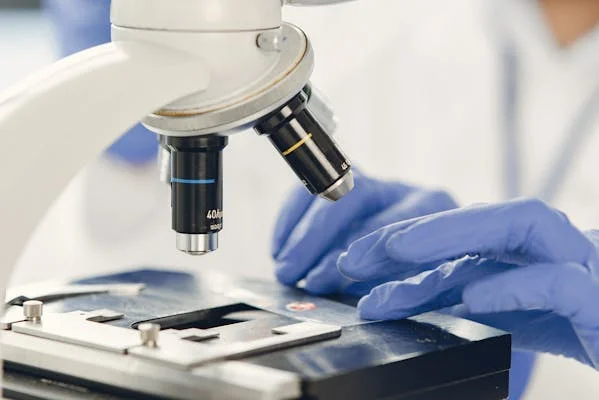An associate in biological science is primarily involved in conducting experiments, analyzing data, and assisting in various aspects of biological research. Their work may involve handling laboratory equipment, preparing samples, and ensuring safety protocols are adhered to during experiments. Associates are also responsible for maintaining meticulous records of their findings and ensuring the accuracy of the data collected.
In some cases, associates in biological science may specialize in particular fields such as microbiology, genetics, or environmental science, depending on the research focus. Their ability to work with various technologies, tools, and methodologies allows them to contribute significantly to scientific discoveries.
Required Skills for an Associate in Biological Science
To be successful in this role, an associate in biological science must possess a combination of technical and analytical skills. Here are some key skills required for this position:
- Laboratory Skills: An associate must have proficiency in handling laboratory instruments and conducting experiments with accuracy.
- Analytical Thinking: The ability to interpret data, recognize patterns, and make informed decisions based on experimental results is essential.
- Attention to Detail: Since biological research often involves complex tasks, associates must be able to focus on small details and ensure that all protocols are followed precisely.
- Communication Skills: Being able to write reports, present findings, and collaborate with other scientists and professionals is crucial.
Educational Requirements for Associates in Biological Science
How to Become an Associate in Biological Science
To pursue a career as an associate in biological science, an individual typically needs at least an associate’s degree in biology or a closely related field. This degree provides the foundational knowledge in various biological sciences, including cell biology, ecology, and genetics.
In some cases, a bachelor’s degree or a specific certificate may be required, particularly for positions in specialized fields. Some employers may also require prior experience working in a lab setting, which can be gained through internships or volunteer work during the educational process.
Key Areas of Study
A typical associate in biological science program covers a wide range of subjects that prepare students for research and laboratory roles. Common courses include:
- General Biology: An introduction to the fundamental principles of biology, including cell structure, genetics, and ecological systems.
- Chemistry: Basic organic and inorganic chemistry, which is essential for understanding biological processes.
- Microbiology: The study of microorganisms, including bacteria, viruses, and fungi, which is crucial for roles in medical and environmental biology.
- Genetics: The principles of inheritance, DNA structure, and genetic analysis techniques used in research.
Career Prospects for Associates in Biological Science
Job Opportunities
The demand for associates in biological science has grown significantly as scientific advancements continue to expand. Graduates can pursue a variety of career paths in both academic and private sectors. Some common job titles include:
- Research Assistant: Assisting in experiments, collecting data, and supporting researchers.
- Lab Technician: Operating laboratory equipment, preparing chemicals, and maintaining a clean and safe environment.
- Environmental Technician: Collecting and analyzing environmental samples, conducting fieldwork, and supporting environmental research projects.
- Medical Laboratory Assistant: Working in healthcare settings to perform diagnostic tests and manage laboratory processes.
Salary Expectations
Salaries for associates in biological science can vary depending on location, industry, and experience level. On average, individuals in this field can expect to earn between $35,000 and $55,000 per year. With further education or specialization, opportunities for higher salaries and more advanced roles, such as lab supervisor or research scientist, are possible.
How Associates in Biological Science Contribute to the Field of Research
Supporting Scientific Advancements
Associates in biological science are instrumental in supporting groundbreaking research that drives progress in health, medicine, agriculture, and environmental conservation. For example, they may assist in studies related to disease prevention, plant genetics, or the development of new treatments for various medical conditions.
Through their dedication and technical expertise, associates in biological science help to bridge the gap between theoretical knowledge and practical application. Their work directly influences the outcomes of research projects and the advancement of scientific understanding.
Collaboration with Other Professionals
In most research settings, associates in biological science work closely with biologists, chemists, engineers, and other scientists. By collaborating with specialists in related fields, associates contribute their knowledge of biological systems while learning from the expertise of others. This multidisciplinary approach often leads to more innovative solutions and faster breakthroughs in research.
Future Trends in the Field of Biological Science
The Growing Importance of Technology
As the field of biological science continues to evolve, technology plays an increasingly crucial role. Advances in molecular biology, genetic engineering, and biotechnology are transforming the way biological research is conducted. Associates in biological science must stay updated on the latest technological tools and software used for data analysis, modeling, and simulation.
For example, the use of artificial intelligence and machine learning in biological research has become more widespread, allowing for more efficient processing and interpretation of complex biological data. Associates who are familiar with these technologies will be well-positioned for future career growth.
Specializations in Emerging Areas
Emerging fields such as bioinformatics, nanotechnology, and synthetic biology offer exciting opportunities for associates in biological science. These specialized areas require individuals who are highly skilled in handling advanced technologies and working with cutting-edge research. As these fields continue to expand, there will be an increasing demand for well-trained associates to support ongoing research efforts.
Conclusion
In conclusion, associates in biological science play a pivotal role in the ongoing development of biological research and the broader life sciences sector. Through their technical expertise and support, they contribute to advancements in health, medicine, and environmental conservation. With the growing importance of technology and the rise of specialized fields, the demand for skilled associates is expected to continue to rise. Those interested in pursuing a career as an associate in biological science can look forward to a rewarding and dynamic role that offers numerous opportunities for growth and development. Associates in Biological Science: Role & Career Overview.
FAQS
1. What is an Associate in Biological Science?
An associate in biological science is a professional who assists with biological research, laboratory experiments, data analysis, and supporting various tasks in scientific projects. They typically hold an associate’s degree in biology or a related field.
2. What are the responsibilities of an Associate in Biological Science?
The responsibilities include conducting experiments, collecting and analyzing data, preparing samples, maintaining laboratory equipment, and ensuring safety protocols in a research setting.
3. What skills are required to become an Associate in Biological Science?
Key skills include laboratory proficiency, analytical thinking, attention to detail, and strong communication abilities. Associates should also be familiar with modern biological technologies and research methods.
4. What education is needed to become an Associate in Biological Science?
Most positions require at least an associate’s degree in biological sciences, although some may require additional qualifications or certifications, particularly in specialized areas of biology.
5. What are the career prospects for an Associate in Biological Science?
Associates in biological science can pursue careers as research assistants, lab technicians, environmental technicians, or medical laboratory assistants. With further education and experience, they can advance to more specialized roles in research and healthcare.





